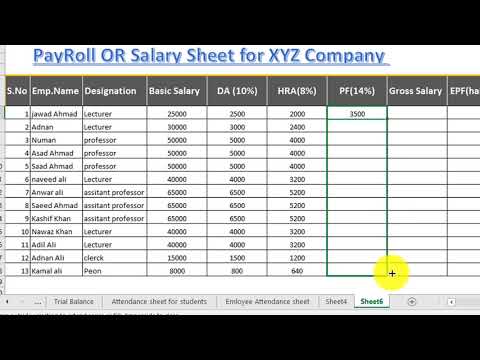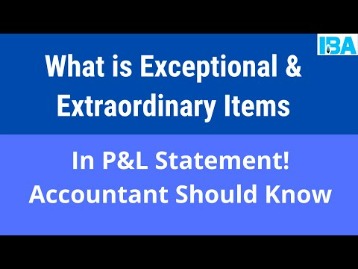
Debtors are obligated to make payments on their debt obligations with interest to the creditor. Creditors expect repayment from their principal with interest when they loan out money. If these payments aren’t made, creditors will hire or employ collectors to get the money. A creditor is someone who lends money to another person or business. When somebody borrows money, they promise to pay it back with interest.
Useful civil law concepts to understand the assignment rules in the … – DLA Piper
Useful civil law concepts to understand the assignment rules in the ….
Posted: Wed, 30 Aug 2023 14:33:46 GMT [source]
Note that every business entity can be both debtor and creditor at the same time. For example, a company may borrow funds to expand its operations (i.e., be a debtor) while it may also sell its goods to the customers on credit (i.e., be a creditor). In cases where the debtor is unable to repay the debt, creditors may take legal action to recover the outstanding balance. This can involve filing a lawsuit, obtaining a judgment against the debtor, and using legal remedies such as wage garnishment or bank account seizure to collect the debt. While being a creditor can be profitable, it also involves risk. There is always a chance that the debtor will fail to repay the debt, leaving the creditor with a loss.
What is a good credit score?
Whenever the company purchases goods from another company or services are provided by a person and the amount is not yet paid. Creditors—like mortgage lenders, credit card issuers and financial institutions—may use an underwriting process to determine a potential debtor’s eligibility for loans or lines of credit. how a general ledger works with double-entry accounting along with examples Debtors are people or organizations to whom money is owed, while creditors are those who owe money. Debtors are therefore an asset to the organization, while creditors are a liability. This is because debtors have the potential to bring in money (through payments), while creditors need to be paid back.
Who Is the Claims Agent and What Type of Information Can I Obtain … – JD Supra
Who Is the Claims Agent and What Type of Information Can I Obtain ….
Posted: Tue, 22 Aug 2023 07:00:00 GMT [source]
On the other hand, creditors are individuals or entities to whom a company or individual owes money. Debtors are an integral part of current liabilities and represent the aggregate amount which a customer owe to the business. On the contrary, a creditor represents trade payables and is a part of the current liability. A creditor is a person or entity to whom the company owes money on account of goods or services received. Debtors are assets because they represent money that is owed to a business by its customers.
We’re here to help you manage your money today and tomorrow
Understanding the difference between these two terms is important for managing a company’s finances effectively and making informed business decisions. Creditors are individuals or entities that have lent money or extended credit to another party. This can include banks and other financial institutions that provide loans or credit cards, as well as individuals or businesses that have provided goods or services on credit. In business, we normally use debtor for any customer we sell goods or provide service on credit. For example, If Firm A sells goods worth ₹10,000 and Firm B promises to pay after 90 days.
- Thus, a Creditor vs Debtor is important for every business as they play a huge part in running the business and its liquidity.
- In contrast, a debtor is the person or party that owes the creditor money.
- The practice ensures that a company receives payments from its debtors and sends payments to its creditors on time.
- Many people find that once they graduate and enter the working world, they struggle to pay back their student loans.
- In exchange for lending money to a debtor, the creditor sets repayment terms on the borrowed money, and the debtor may have to pay interest.
In some cases, money owed by a debtor can be an account receivable (for goods or services bought on credit) or note receivable if it’s a loan. In accounting reporting, creditors can be categorized as current and long-term creditors. The debts are reported under current liabilities of the balance sheet. Debts of long-term creditors are due more than one year after and are reported under long-term liabilities. Creditors – In day-to-day business, a person or a legal body to whom money is owed is known as a creditor. For a business, the amount to be paid may arise due to repayment of a loan, goods purchased on credit, etc.
Small business cards
Check for pre-approval offers with no risk to your credit score. To ensure a stable cash flow and future-proof your company, handle the difference between the two carefully. If anything goes wrong, the scales may tilt in favour of failure. It may also refer to a person who has lent money to a friend but has not yet received it back. However, there is a risk that gold prices could fall and you could lose money on your investment.

He is the sole author of all the materials on AccountingCoach.com. Creditors can be used to describe a person who gives a loan to any other person and in return, he supposes to get interest on the loan he is giving. Thus, a Creditor vs Debtor is important for every business as they play a huge part in running the business and its liquidity.
Bank Creditors
Additionally, excessive debt can damage a debtor’s credit score, making it harder for them to obtain credit in the future. Current debtors are those who are up to date with their payments and have not missed any deadlines. Delinquent debtors, on the other hand, have missed payments or failed to meet their financial obligations.

There are a few different theories as to why banks are called debtors. One theory is that it is because banks lend money to people, and when someone borrows money from a bank, they become the bank’s debtor. Another theory is that the term originated during the medieval period, when Italian bankers would travel around Europe with large sacks of gold coins. These bankers would then loan out these coins to people in need, and when the borrower was unable to repay the loan, the banker would keep the coin.
What Are Debtors and Creditors? Understanding Their Differences
Debtor-creditor law typically plays out through bankruptcy proceedings. Learn why your credit score may not change when you pay bills on time & pay off credit card balances. If you’re approved, the creditor pays the seller of the home and reduces the loan balance based on the loan’s interest rate, repayment term and other loan terms. You’ll then make payments based on the agreement until you pay the loan in full, refinance the debt or sell the home.
- The debtor is the party who owes money to the creditor, while the creditor has to receive money from the debtor.
- Minimum credit scores or debt-to-income ratios may be required for borrowers to qualify for financial products.
- The only situation in which a business or person is not a creditor or debtor is when all transactions are paid in cash.
- Creditor vs Debtor is an important part of the said, forming an important part of the company’s liquidity position.
- Some people may choose a different route for borrowing money—like asking someone they know for a loan.
Sundry Debtors and Sundry Creditors are the stakeholders of the company. For an efficient Working Capital cycle, every company maintains a time lag between the receipt from debtors and payment to creditors. Debtor-creditor law governs situations where one party, known as the debtor, is unable to pay a monetary debt to another, known as the creditor.
Credit policy is made by the management of the company which takes decisions regarding credit period allowed to debtors as well as discount allowed to them for making early payments. However, still, there is a possibility that some debtors fail to pay the sum in time for which they have to pay interest for making a late payment. In contrast, a debtor is the person or party that owes the creditor money. For example, you would be a debtor if you took out a loan with your bank.


